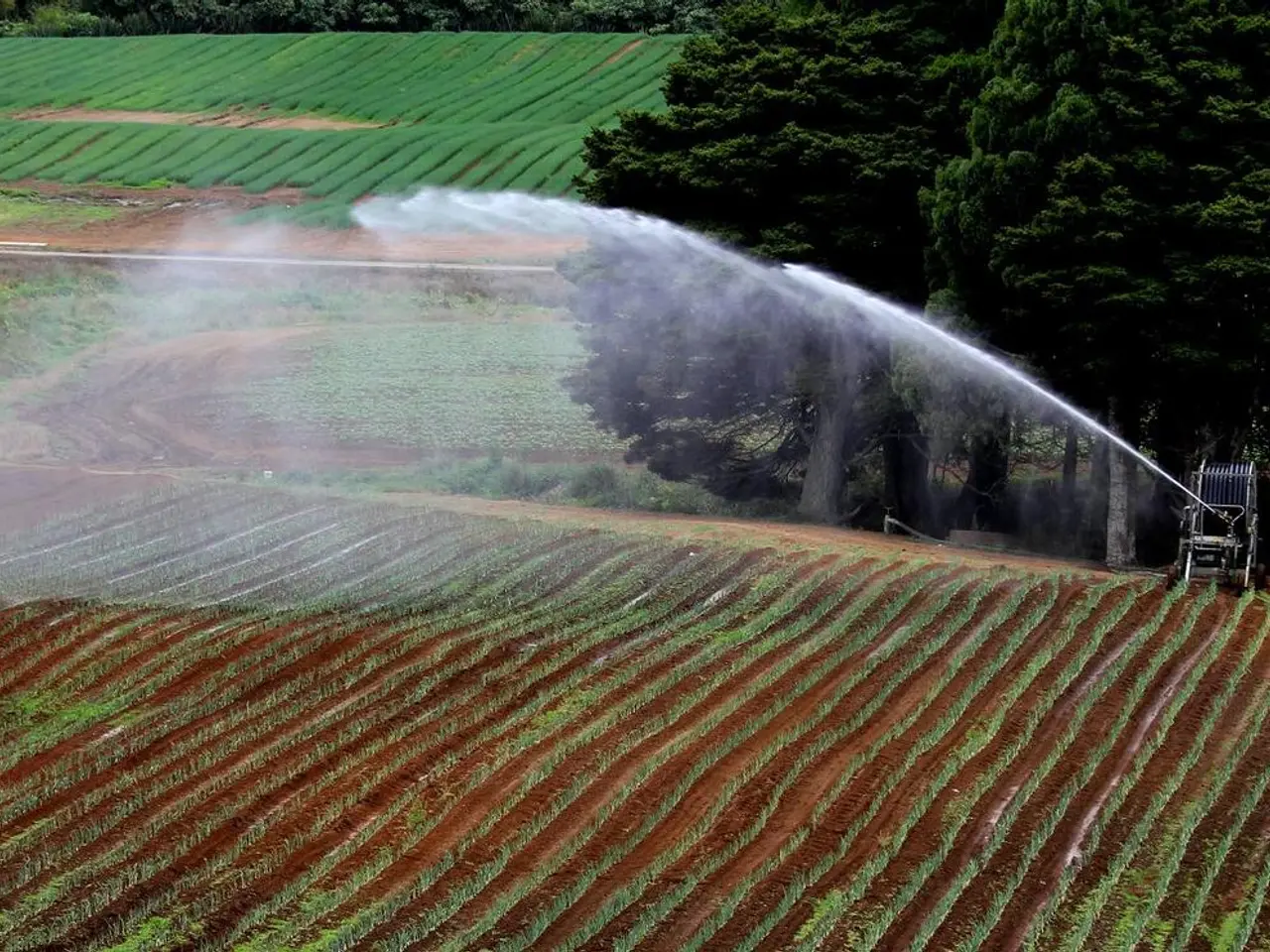Tanzania Introduces e-Kilimo: Transforming Agriculture through Digital Innovations
In a significant move to modernize its agriculture sector, Tanzania has launched e-Kilimo, a digital platform designed to address the challenges faced by farmers in rural areas with limited internet and smartphone access [1][2].
The platform, part of a larger EU and UN-supported $3 million program, aims to provide farmers, particularly those in remote areas, with expert technical support [1][2]. By integrating a simple mobile app system, e-Kilimo connects farmers directly with nearby agricultural extension agents for tailored advice, helping overcome barriers of isolation and lack of timely expertise that rural farmers often face [1][2].
Key features of e-Kilimo include a localised approach that allows farmers to locate and contact extension officers in their vicinity, facilitating targeted, on-demand support without farmers needing extensive digital skills or complex infrastructure [1][2]. The platform also functions as a registry for input suppliers, helping authorities track the distribution of agricultural inputs and curb counterfeit products [1][2]. This system supports rural farmers in accessing genuine seeds and fertilizers, which is crucial where market information is often scarce [1][2].
Accountability mechanisms through annual performance evaluations of extension agents are built into the system, improving the quality and reliability of advice given to farmers [1][2]. The platform also includes digital skills training and mobile-based market access initiatives to gradually improve farmers’ digital inclusion [1][2].
While limited smartphone and internet penetration pose a connectivity challenge, e-Kilimo’s design to leverage basic mobile apps and localised agent networks makes it practical [1][2]. The initiative complements digital training and real-time data collection tools to progressively enhance rural agricultural service delivery and productivity [1][2].
Tanzania, with agriculture contributing 23% to its GDP and employing nearly two-thirds of its population, stands to benefit significantly from the success of e-Kilimo [1][2]. If successful, the e-Kilimo model could inspire other nations in the region to adopt similar digital tools to support their agricultural sectors.
According to the FAO, over 75% of Tanzania's population resides in rural areas where farming is crucial to their livelihoods [1][2]. Tanzanian officials are optimistic that e-Kilimo can bridge the gap in providing timely technical advice to farmers. However, only 31.9% of Tanzanians are online, according to the International Telecommunication Union (ITU) [1][2].
In conclusion, e-Kilimo's focus on providing accessible expert advice through nearby extension agents and integrating input tracking, addresses internet and smartphone limitations to empower rural farmers with relevant, trustworthy agricultural information and support [1][2]. The platform's potential to revolutionize agricultural services in Tanzania and beyond is promising.
[1] Agriculture Minister Hussein Bashe launched e-Kilimo at the Mtanana Agricultural Innovation Center. [2] The program includes mobile-based market access, digital skills training, and the implementation of real-time data collection tools. [3] The program is part of a larger effort to strengthen Tanzania's agricultural services and digitize the agriculture industry. [4] e-Kilimo aims to provide farmers, especially those in remote areas, with expert technical support. [5] Agriculture contributes 23% to Tanzania's GDP and employs nearly two-thirds of the population. [6] e-Kilimo is designed to enhance the accountability of extension officers through an annual performance evaluation system. [7] By distributing best practices more effectively, improving resource allocation, and enhancing the focus of interventions, e-Kilimo has the potential to revolutionize agricultural services. [8] The limited internet and smartphone access in rural regions poses a barrier to the widespread adoption of e-Kilimo. [9] The program, funded by the European Union and jointly managed by the Tanzanian government and the United Nations, has a budget of $3 million. [10] Tanzania launched e-Kilimo, a digital platform to modernize its agriculture sector. [11] Only 31.9% of Tanzanians are online, according to the International Telecommunication Union (ITU). [12] Tanzanian officials are optimistic that e-Kilimo can bridge the gap in providing timely technical advice to farmers. [13] e-Kilimo serves as a registry for input suppliers, allowing authorities to track agricultural products distribution. [14] Farmers can connect with local extension agents via e-Kilimo for tailored advice. [15] The majority of Tanzania's population (over 75%) resides in rural areas where farming is crucial to their livelihoods, according to the FAO. [16] If successful, the e-Kilimo model could inspire other nations in the region to adopt similar digital tools to support their agricultural sectors.
The platform, e-Kilimo, is part of a larger program that aims to provide farmers, especially those in remote areas, with expert technical support through a simple mobile app system [1][2]. By integrating this system, farmers can connect directly with nearby agricultural extension agents for tailored advice, overcoming barriers of isolation and lack of timely expertise [1][2]. The platform also functions as a registry for input suppliers, helping authorities track the distribution of agricultural inputs and curb counterfeit products, thereby supporting rural farmers in accessing genuine seeds and fertilizers [1][2].




